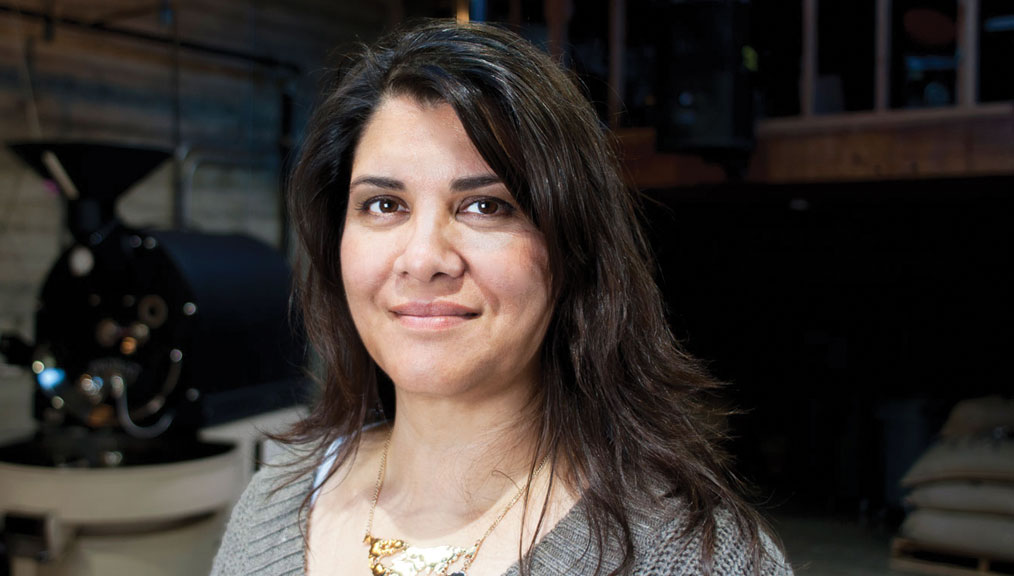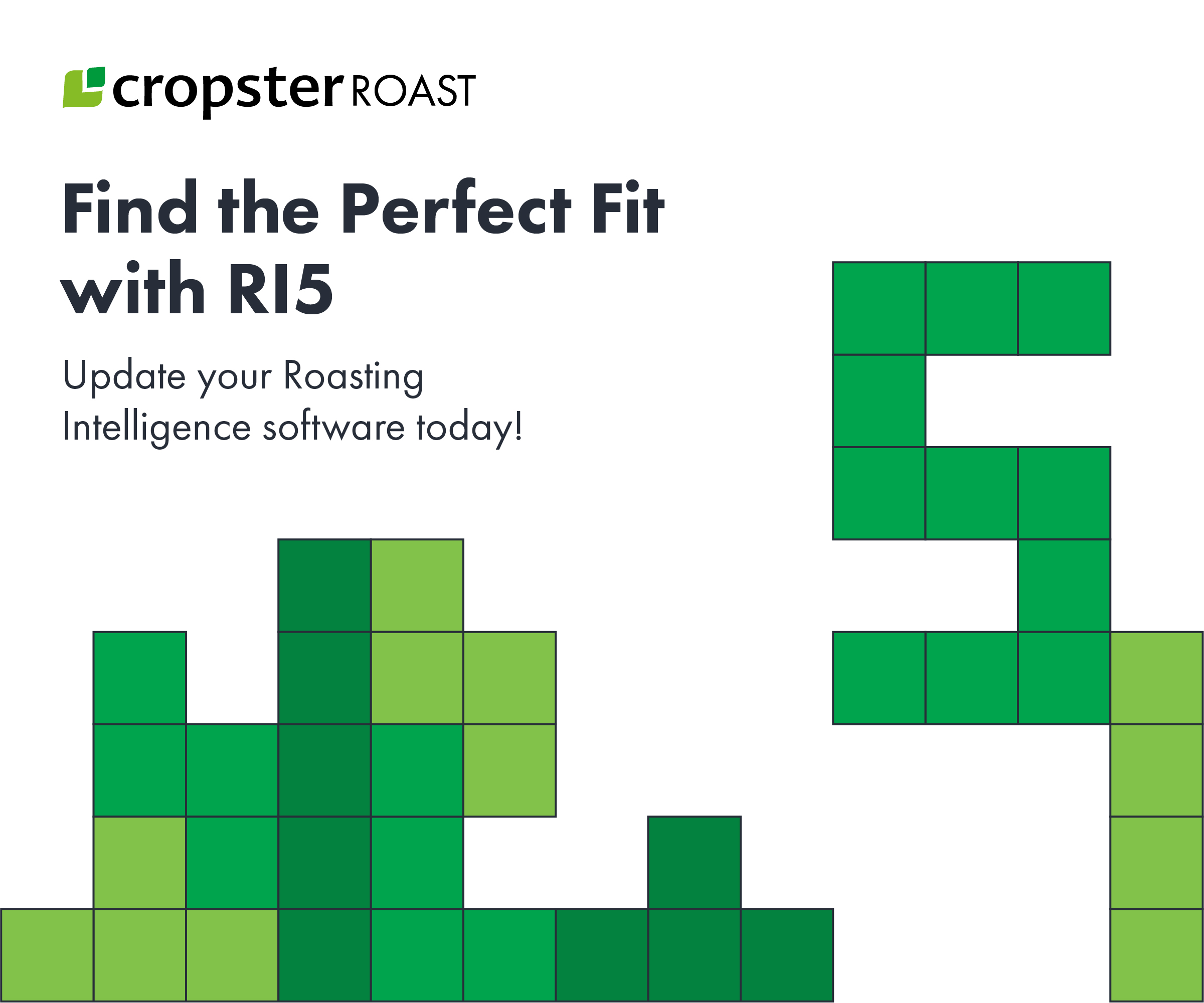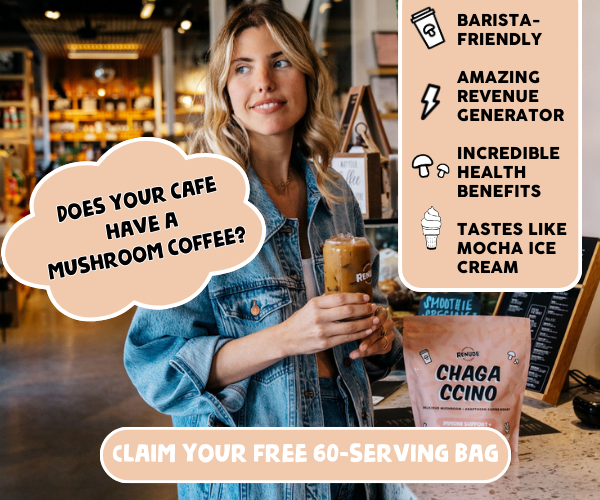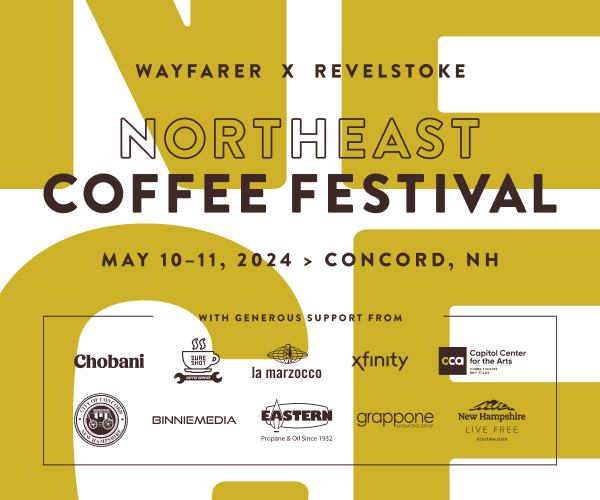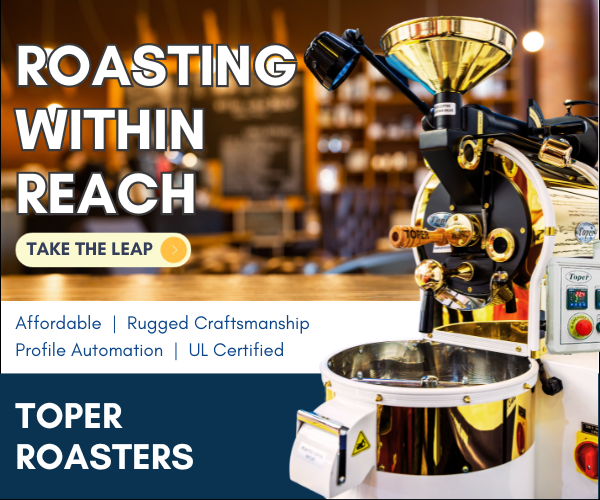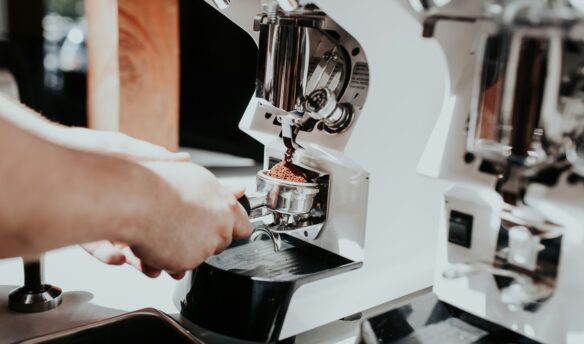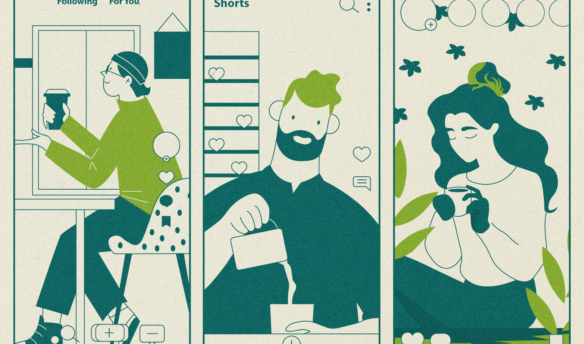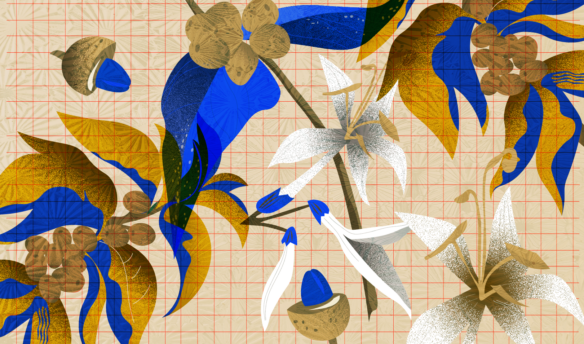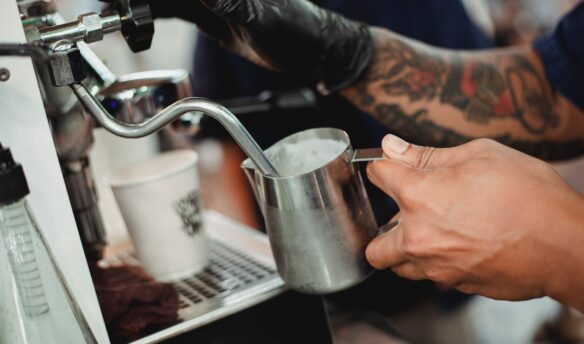[T]rish Rothgeb started roasting coffee long before it was a cool thing to do, when it was simply a means to support her path to an art degree. Though her budding art career had promise (she was actually selling paintings), she kept taking coffee jobs, finding herself compelled by the artistic side of the business. “It just wouldn’t let go of me,” she says. “In the end I realized it was actually the thing I loved about art—I could see the full circle. I’m making this thing, I’m handing it over, and people are consuming it in a very real, tangible way.”
Since her roasting gig in the early nineties, Rothgeb has built a serious coffee resume. Currently the director of Q and educational programs for the Coffee Quality Institute, she was the first female Q grader in the US and a founding member of the Barista Guild of America. Oh yeah, and she’s also credited with coining the term “third wave.”
But she’ll be the first to tell you that her stacks of credentials carry little weight in San Francisco, where she and her husband run Wrecking Ball Coffee. In their café, being the director of Q is meaningless if they can’t deliver an exceptional product to their customers. But that’s okay with Rothgeb. She sees the pursuit of quality coffee as a lifelong plight, and hopes to continue delving into that—both for her own shop, and for the industry as a whole.
This interview has been edited for clarity and space.
How did you originally get into coffee?
I grew up in San Jose, California. I was a college student at San Jose State University and I was studying art. I got a degree in painting and drawing from SJSU. It was my college job—I was a barista. Then in 1990 I learned how to roast on a small roaster. This is before it was a cool thing to do. It was just a weird thing to do. People ask how I broke into roasting. There was no breaking into roasting. There was: ‘I want to be the one that does this, will you train me?’ And the boss was like, ‘I would rather golf in the morning so sure, I’m going to give you this job and I’m going to teach you how to turn this machine on and make this coffee as black as tar and that’s how I want you to roast.’
Where were you working at the time?
I learned how to roast in a town called Campbell, which is a suburb of San Jose. I worked at Campbell Coffee Roasting Company, which no longer exists. It was just a retail roaster. A little crappy coffee shop with a little shop roaster in it. And the coffee was probably terrible, but it was a long time ago.
How did your first roasting job grow into the credentials that you have now, like your position with the Coffee Quality Institute?
I kept taking coffee jobs and it just wouldn’t let go of me. Then I went ahead and I learned everything there was I didn’t know about coffee and it was too fascinating, I had to keep going.
But then I went to Europe and it was like a whole new world, just so much information. I had already been in coffee for ten years when I went to Norway and when I got there I was like, what the hell is going on? This is a whole different world. Like what are these cappuccinos? They’re perfection. That’s when I got a new flood of interest. The idea of being an artist really died then because I saw what the potential was for coffee in the future and I was blown away and I was sold for life.
Tell me more about your work with the Coffee Quality Institute.
The Q program and Q system are a worldwide, globally recognized system for grading coffee on a specialty scale. So basically it’s one of a handful of programs out of the Coffee Quality Institute—it’s probably the most notable one. Its original purpose was to train producers at origin about the quality of their own coffee. In doing so it’s spread past that and now everyone’s interested in that. Certification of the individual cupper or grader has become probably even more of a popular thing.
Really early on I was part of the first class of Q graders out of the United States so I saw the initial program and over time it’s been updated, and we’re currently at 4.2 version, when I started the job we were launching 4.0 version, which was a really big leap. A lot of major changes. That happened about three years ago now and it’s pretty well incorporated into Q.
What were some of the changes made in the update to 4.2 version?
4.2 is one that hopes to incorporate and better explain the new Flavor Wheel and Lexicon that’s been put out by SCAA and the World Coffee Research. That’s the kind of thing we work to update and keep things as current as we possibly can.
As a director of Q I’m not interested in having a huge army of Q graders covering the Earth. What I’m interested in is quality graders that know what the process is, then having most people in the industry understand the process.
Do you ever hold public cuppings at Wrecking Ball, your café?
No, for a couple of reasons. Our shop is very, very small. I’ve tried a few times having in-house cuppings at our café, because to get our baristas out to the roastery to do a cupping is challenging. It’s also difficult for me—it’s an occupational hazard for me to talk to the lay person about coffee. I was telling somebody today how I hate to tell my hairdresser what I do for a living because then you have this person who just wants to tell you all the things they know about coffee. This is my other problem with doing public cuppings—if I had the time and the space I would train either my head trainer or my lead barista to do those with customers and they would love it and the baristas would love doing it. That’s a better application of my time than to try to do it myself and be nervous because people aren’t rinsing their spoons or not doing something else. I’m so totally focused on the technical that I’m just a fish out of water anymore in that space.
Is there a recognition or project that you’re particularly proud of?
I’m proud that I was the first female Q grader in the United States and I was like the seventh Q grader in the US. I’m really proud of being able to train so many people—whether they become Q graders or not. I’m so proud of that. And then, I’m like exceedingly overjoyed and proud of my little café. It’s delivering on the promise of specialty every day, and I’m so excited about it.
How do the various roles you’ve held in the industry translate to what you do with Wrecking Ball?
When all is said and done, we’re still a café that is staffed by baristas, and a roastery, and an office which has workday people in it. Like everybody else, I do not have a ton of time or extra money that I can use to train my own staff, no matter how much I would want to. And so it has to be very well orchestrated. I don’t know if I’ve gotten that quite right yet. My husband and I are like an open book for anyone who’s searching and wanting more information. There definitely is a standard set in the roastery and at the bar and through those kind of standards, people learn about why a coffee doesn’t taste well and how to improve on it the next time, or how to present coffee in a way that makes sense and is logical in some way that is keeping with our philosophy about coffee. I wouldn’t say that we are the best at it, but I have aspirations for being all of that to my employees.
Any future goals or plans of other things you’d like to get your hands into in the coffee industry?
Well, I’m getting old, I turn fifty in February, and there are a lot of people my age thinking about their legacy in coffee and thinking about how they can retire. But my coffee company is just about five years old, so it’s not totally figured out yet. So I plan to spend the near future really making this a solid company and being able to enjoy it. I feel like it’s a lifelong plight, how do you deliver the best coffee across the counter in the end, what does it take to deliver on the promise of specialty coffee? It means you have to constantly push yourself because it’s so easy to drop the ball. I’m looking forward to delving into that. My husband and I also have a pretty good record of making sure people can walk the path they want to walk. Like we really want to be mentors to people and show them how they can get what they want out of life through coffee. I’m really interested in seeing people spread their wings, people who have worked with us: where do you go from here? what are you going to discover? what are you going to bring to the industry? That’s so exciting to us.
—Ellie Bradley is Fresh Cup‘s editor.

